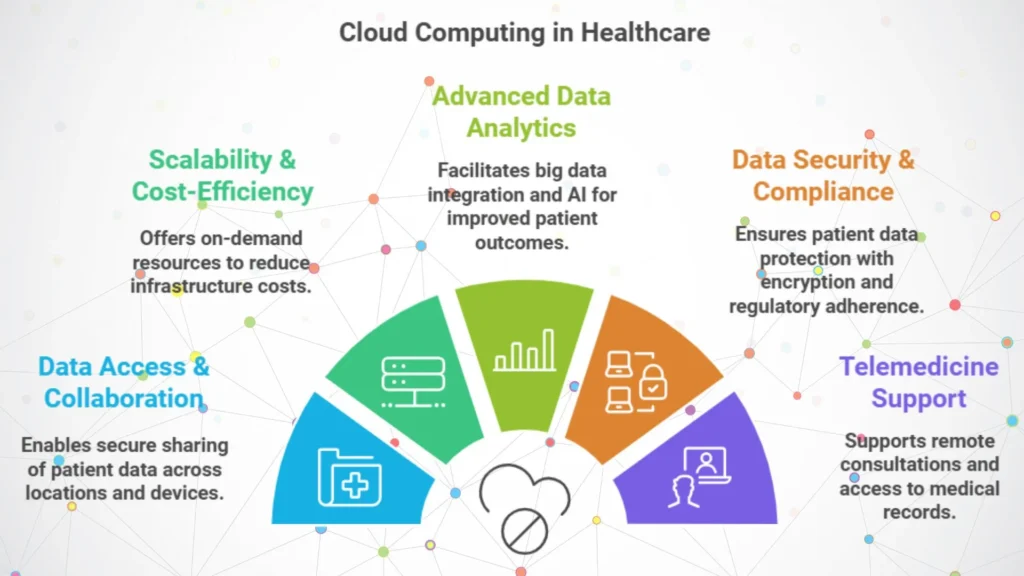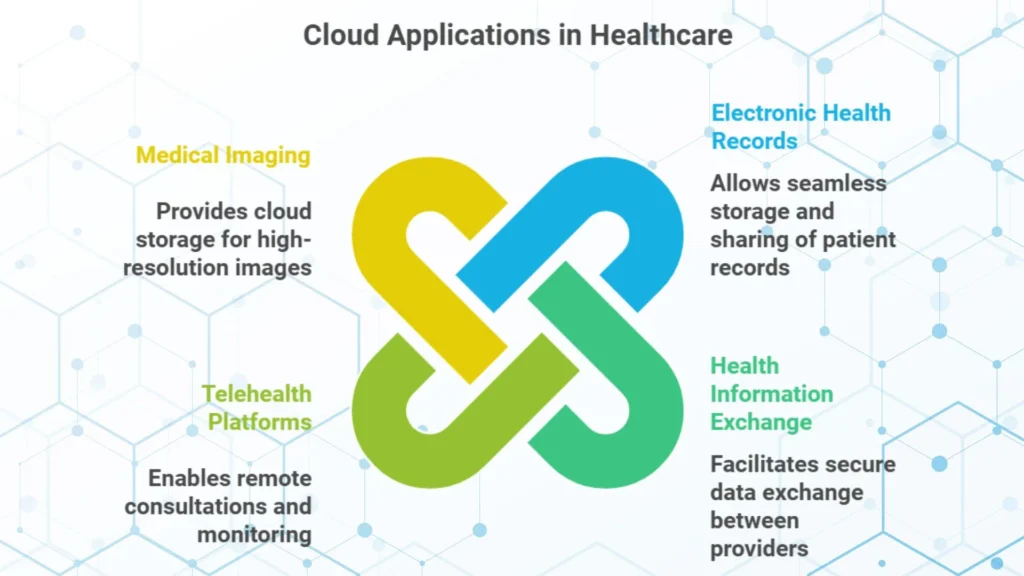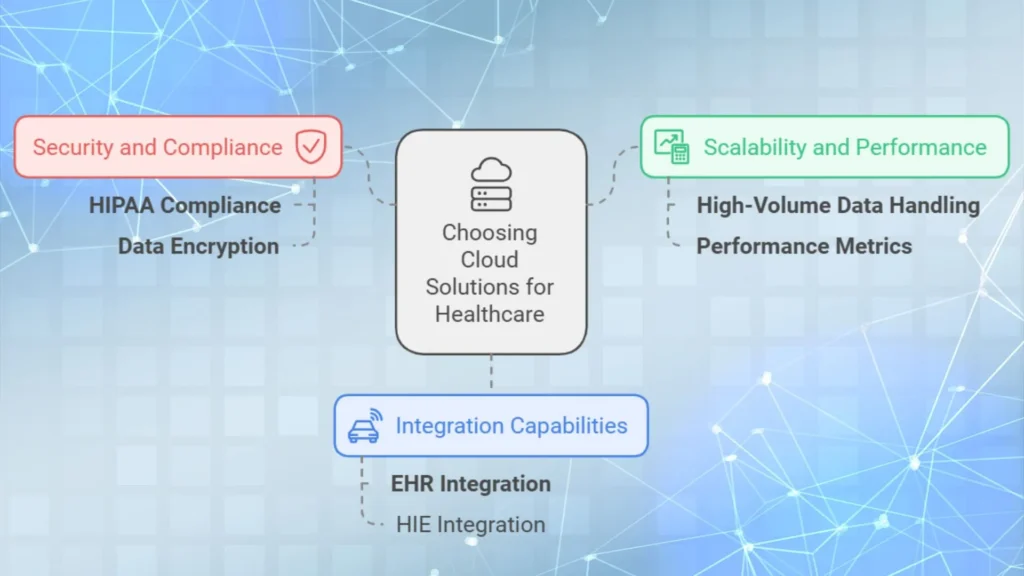Cloud computing has transformed healthcare by enabling better patient care, streamlined operations and improved data management. For healthcare organizations, cloud based solutions provide flexibility, scalability and secure access to medical data and applications. Here is a look at the key benefits and uses of cloud computing solutions for healthcare organizations.
Key Benefits of Cloud Computing in Healthcare
1. Enhanced Data Access and Collaboration:
Cloud computing enables healthcare professionals to access and share patient database like, Electronic Health Records (EHRs) securely across different locations and devices. This helps to make better collaboration between physicians, specialists and other care providers by sharing patient data and treatment plans securely.
2. Scalability and Cost-Efficiency:
Unlike traditional data storage solutions, cloud computing offers on demand scalability. By moving to the cloud, healthcare organizations can cut down on the expenses associated with maintaining physical servers and IT infrastructure. They can easily scale resources up or down based on demand. This can ensure they only pay for what they use.
3. Advanced Data Analytics and Research:
Big Data Integration: Cloud platforms can store and process large volumes of healthcare data. Which enables advanced analytics and research. This can lead to better disease prediction, patient outcomes and personalized treatment plans.
Machine Learning and AI: Cloud based AI tools can analyze patient data to identify patterns and provide information, which helps to diagnose better and take treatment decisions.
4. Data Security and Compliance:
Cloud providers invest heavily in advanced security features and encryption to ensure patient data remains confidential. They have strong security features, like data encryption, regular backups and disaster recovery solutions. This ensures patient data is protected. Many cloud solutions are designed to meet regulatory standards like HIPAA, GDPR, and HITECH, which are crucial for data protection in healthcare.
5. Support for Telemedicine and Remote Patient Monitoring:
Cloud platforms enable telehealth services, which allows patients to consult doctors remotely and access their medical records online. This is very helpful for patients in rural areas or remote places or those patients with limited mobility.

Popular Cloud Based Applications in Healthcare
Following are some popular cloud based applications available in healthcare sector:
1. Electronic Health Records (EHR):
Cloud based EHR solutions allow healthcare providers to store, access and share patient records seamlessly. This reduces paperwork and improves accuracy.
2. Health Information Exchange (HIE):
Cloud powered Health Information Exchanges provides the secure exchange of patient data between healthcare providers. This enables continuation of care when patients are transitioned between facilities.
3. Telehealth Platforms:
Applications like Amwell and Doxy.me allow healthcare providers to offer remote consultations and patient monitoring through wearable devices. This has become essential for patient care, especially during public health crises or during pandemic.
4. Medical Imaging:
Cloud storage solutions enable healthcare providers to store and share high resolution medical images, such as MRIs and CT scans, without the need for large physical storage space.

How to Choose Cloud Solutions for Healthcare
Following criteria should be considered while choosing correct cloud solution provider:
1. Evaluate Security and Compliance:
Verify that the cloud provider complies with healthcare regulations like HIPAA to ensure data privacy and security.
2. Scalability and Performance:
Choose a solution that can handle high volume data and is scalable to meet your organization’s needs as patient data and service demands grow.
3. Integration Capabilities:
Choose cloud solutions that integrate seamlessly with existing systems, like EHR and HIE, for a smooth data flow across different platforms.

Conclusion
The future of healthcare lies in data driven information. Cloud computing enables this with AI and machine learning. From predictive analytics for patient outcomes to personalized treatment plans, cloud based solutions empower healthcare providers to deliver better and more effective care.
Cloud computing in healthcare has become essential for modernizing patient care, enhancing data management and ensuring operational efficiency. With the right cloud solution, healthcare organizations can adapt to evolving needs and continue to improve patient outcomes.

